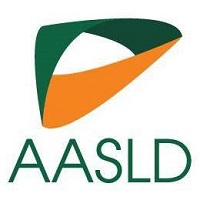 Gilead Sciences’ fixed-dose combination tablet of Sovaldi (sofosbuvir) and the investigational pangenotypic NS5A inhibitor velpatasvir, with or without ribavirin, yielded good results among a cohort of people with various genotypes of hepatitis C virus (HCV) and decompensated cirrhosis, MedPage Today reports. Researchers from the Phase III open-label ASTRAL-4 study randomly divided 267 participants with genotypes 1, 2, 3, 4 and 6 into three treatment groups, who took either: 12 weeks of Sovaldi/velpatasvir; the tablet plus ribavirin for 12 weeks; or 24 weeks of the tablet alone.
Gilead Sciences’ fixed-dose combination tablet of Sovaldi (sofosbuvir) and the investigational pangenotypic NS5A inhibitor velpatasvir, with or without ribavirin, yielded good results among a cohort of people with various genotypes of hepatitis C virus (HCV) and decompensated cirrhosis, MedPage Today reports. Researchers from the Phase III open-label ASTRAL-4 study randomly divided 267 participants with genotypes 1, 2, 3, 4 and 6 into three treatment groups, who took either: 12 weeks of Sovaldi/velpatasvir; the tablet plus ribavirin for 12 weeks; or 24 weeks of the tablet alone.
Results were presented at the Annual Meeting of the American Association for the Study of Liver Diseases (AASLD) in San Francisco.
Seventy-eight percent of the participants had genotype 1; 4 percent had genotype 2; 15 percent had genotype 3; 3 percent had genotype 4; and less than 1 percent had genotype 6.
Ninety-four percent of those who took Sovaldi/velpatasvir plus ribavirin for 12 weeks achieved a sustained virologic response 12 weeks after completing therapy (SVR12, considered a cure), compared with 83 percent of those treated without ribavirin for 12 weeks, and 86 percent of those in the 24-week group. There was no statistically significant difference between these cure rates, meaning the difference between them could have occurred by chance.
Among those with genotype 1, 96 percent of those who took Sovaldi/velpatasvir plus ribavirin for 12 weeks were cured, as were 88 percent of those were treated for 12 weeks without ribavirin, and 92 percent of those treated for 24 weeks. The respective cure rates for those with genotype 3 were 85, 50 and 50 percent. All of those with genotype 2, 4 or 6 were cured, except for one person with genotype 2 in the 24-week arm who died of liver failure after four weeks of treatment.
Nineteen percent of those treated with just Sovaldi/velpatasvir for 12 weeks experienced a serious health problem, as did 16 percent of those treated with ribavirin for 12 weeks, and 18 percent of those treated for 24 weeks. The most common serious health problems were hepatic encephalopathy and sepsis.
The most common side effects were fatigue, nausea and headache, occurring in a respective 29, 23 and 22 percent of all participants. Thirty-one percent of those taking ribavirin developed anemia.
About half of the participants experienced improvements in markers of liver function, with lowered Child-Pugh and MELD scores.
To read the MedPage Today report, click here.

Dreamstime






1 Comment
1 Comment